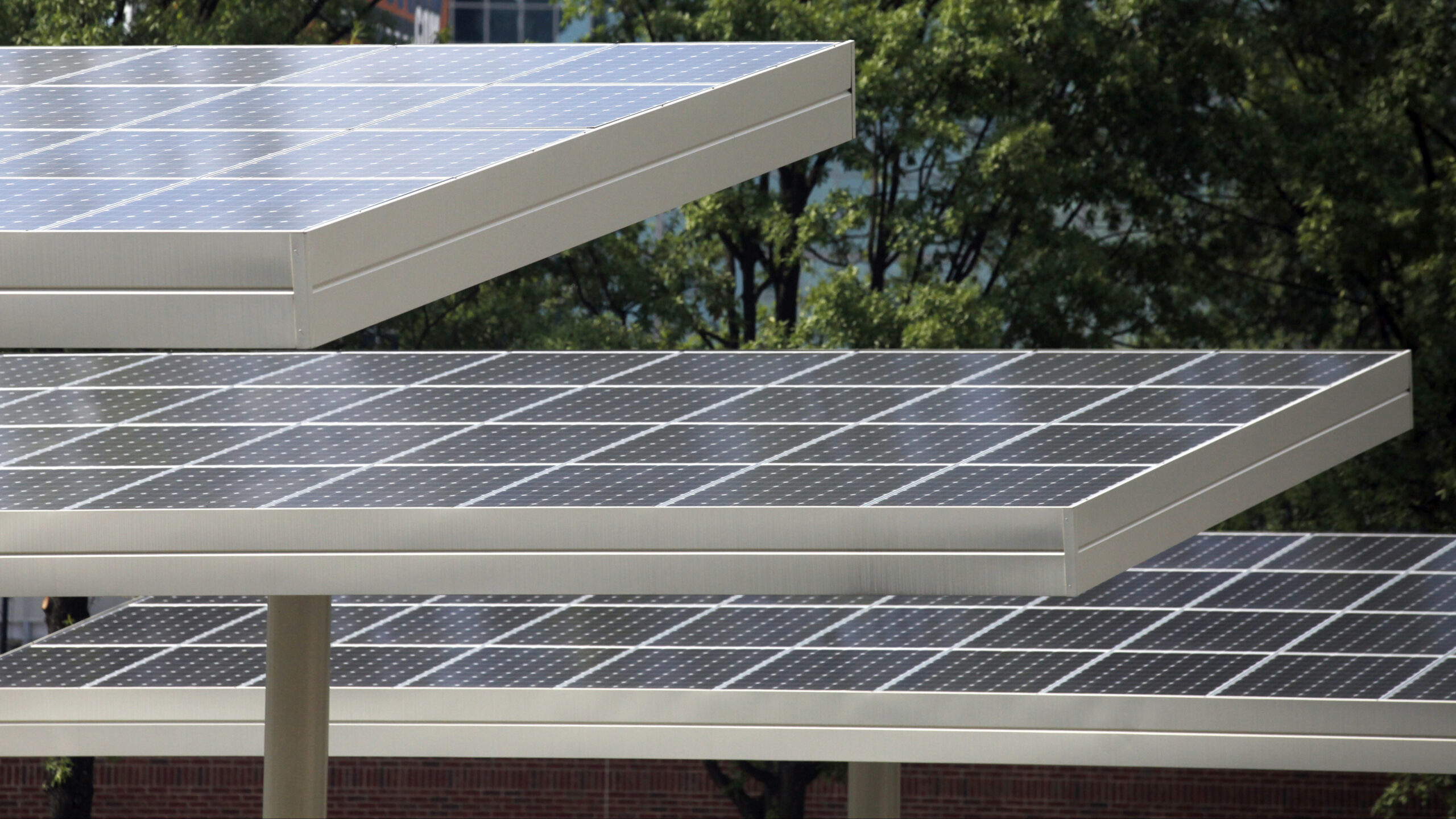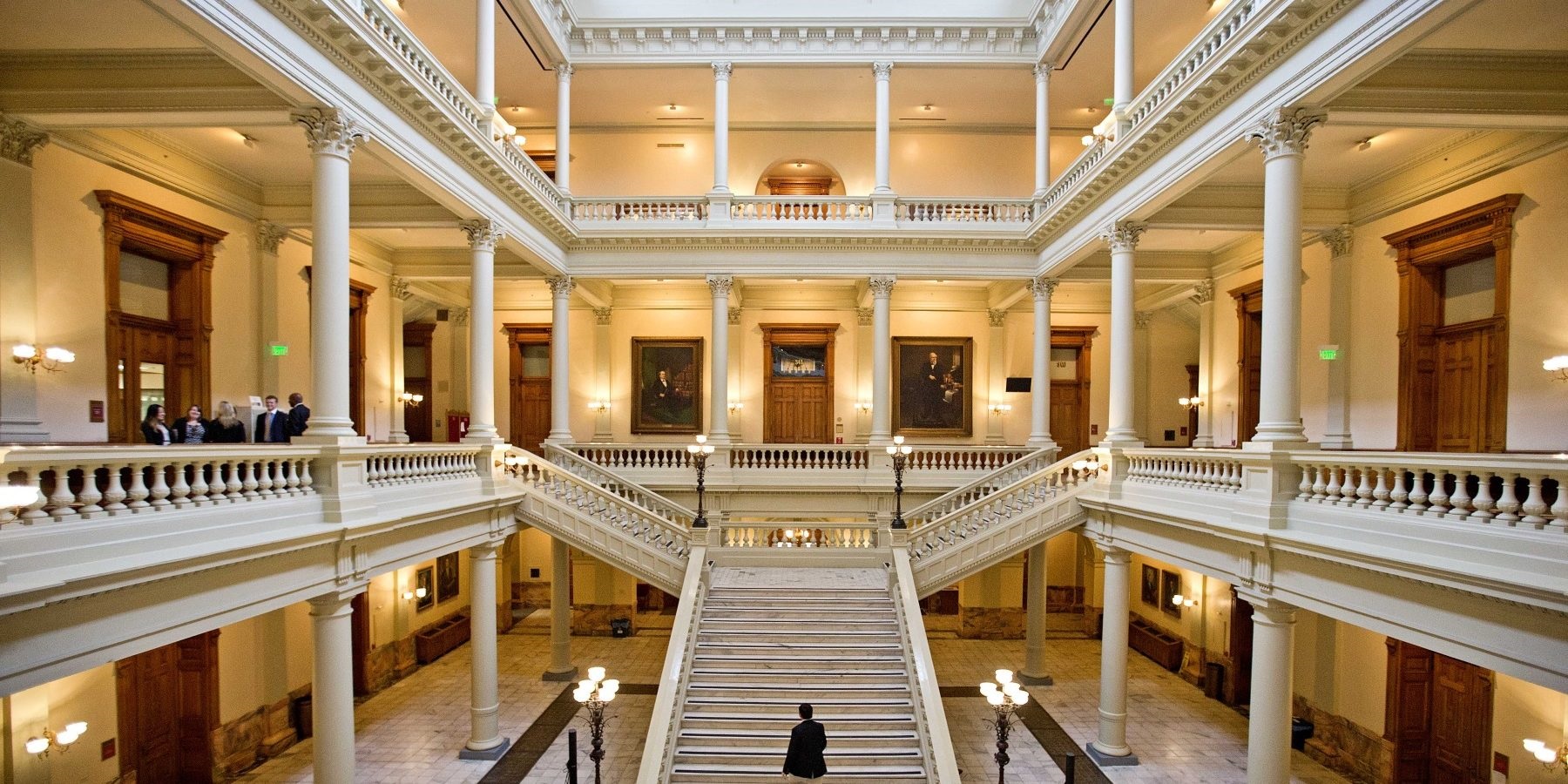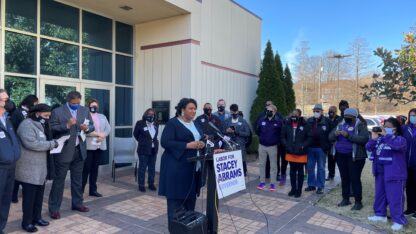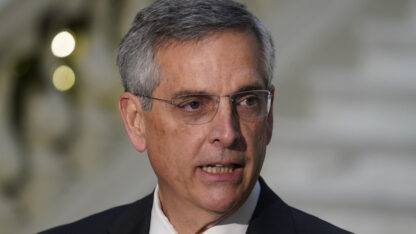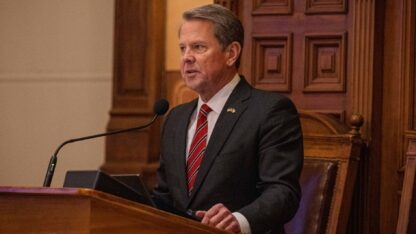Climate change is one of the themes this week at the Democratic National Convention. During the day, panelists have discussed sustainable development, polling on voters’ opinions on climate change and local-level environmental fights.
In the evenings, speakers have mentioned climate in their speeches; Wednesday’s program included a pre-produced segment highlighting young climate activists.
But for politicians, campaigning on climate can be tough. In the battleground state of Georgia, climate and the environment rarely come up in campaigns.
It’s a tough topic to get into on the campaign trail, said state Rep. Debbie Buckner, a South Georgia Democrat who has worked on environmental issues for years.
“It’s not that people don’t really care,” she said. “Right now, I think people are very focused on being concerned about decisions: ‘Do I send my children to school or not? If I get sick, is my insurance going to cover it?’”
Georgia is already experiencing effects from climate change. Nighttime temperatures have, on average, gone up. Down on the coast, the sea level has gone up, too. Increasing heat and flooding will pose risks to people’s lives and livelihoods, as will mosquito-borne diseases and threats to agriculture.
Still, for many people, climate change doesn’t feel all that urgent or personal – assuming they trust the science at all.
“Climate change won’t be at the forefront of most campaigns, but it remains an important factor,” Democratic political strategist Tharon Johnson wrote in an email.
He said Georgia voters do care about it but don’t rank it as high on their priority lists as the economy, education and health care.
“Often issues have to reach the crisis stage in order to really be the top of people’s list,” said Stephanie Stuckey, a former state representative and environmental lawyer who now heads Stuckey’s, her family’s candy company.
“Climate is just not that type of issue,” Stuckey said, though, she added, it depends on the constituency; the district she represented had the highest number of Georgia Sierra Club members in the state, and she did discuss climate and the environment when she ran.
It’s no surprise that the Democrats are emphasizing action on climate change, said Tammy Greer, a political science professor at Clark Atlanta University, because impacts from climate change will affect people unequally.
“What the DNC appears to be doing is taking the matter of social justice and using all of the layers of social justice as part of its rollout for the convention,” she said. “The climate at this moment is social justice.”
Greer said when it comes to campaigning on climate change, in her view, it’s all about how it gets framed, and it makes sense for politicians to focus on local impacts, maybe not even using the words climate change.
Longtime Georgia environmental lobbyist Neill Herring agreed.
He said that to a lot of people, climate change is a term with partisan connotations, but discussing flooding, traffic, land conservation and private property rights – all issues that relate to climate and the environment – gets results.
“Symbols are what people fight over,” he said. “Practical remedies? People don’t fight so much about practical remedies.”
Ted Terry, the former mayor of Clarkston, former head of the Georgia Sierra Club and an officer with the state Democratic Party, said he thinks attitudes about talking about climate change head-on are changing, though. He said he doesn’t shy away from it when he campaigns. (He recently won a primary runoff for DeKalb County Commission; there’s no Republican challenger on the ballot in November.)
Terry said climate change can motivate young voters to turn out.
“They’re looking for the policy platform of how we’re going to address global warming,” he said. “And the Democratic Party has that plan.”
